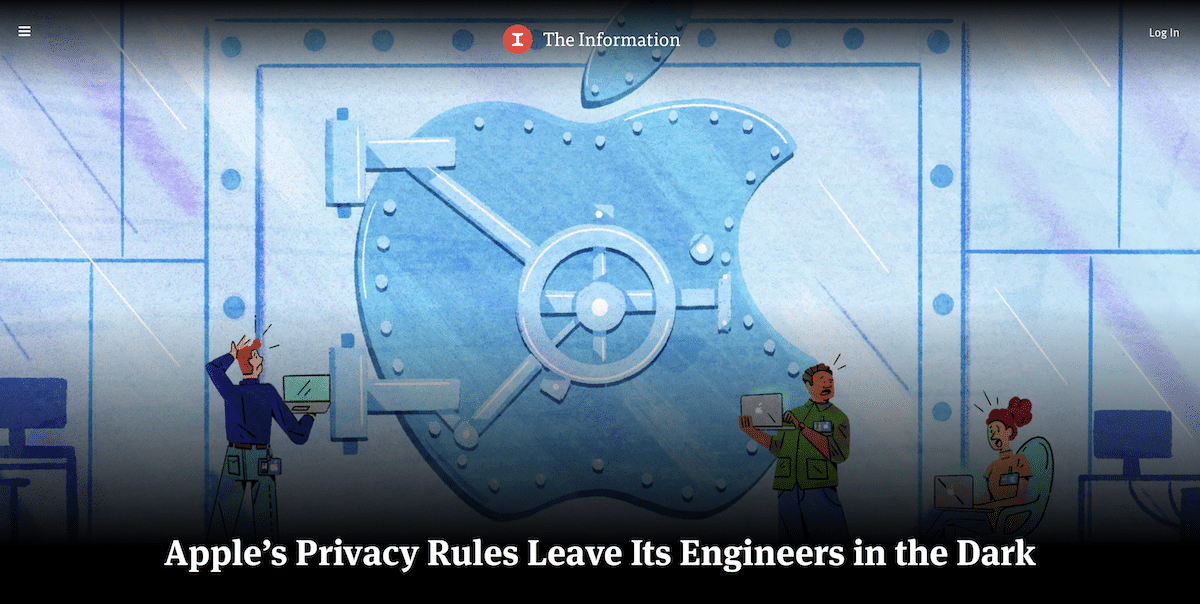Apple is the only tech company that prioritizes users’ privacy. It not only collects the least amount of data that can be personally identified to the user from its Services but also restricts its engineers from accessing that data over concerns of users exploitations.
However, a new report by The Information reveals that Apple’s culture of privacy serves as a handicap for its engineers and developers, especially to push its Services segment.

Titled “Apple’s privacy rules leave its engineers in the dark”, the report takes into account the experiences of former employees who complained that customer data collected from products like Apple Music, App Store was not “widely accessible” to them which made it difficult to develop features offered by competitors who collected more data and had fewer restrictions. One such example is the scrapping of a new ability for Siri to make purchases.
Apple scrapped a new feature for Siri to make purchases because of privacy concerns
As per the report, in 2019 the tech giant explore the technology to make purchases by commanding the voice assistant like the use of Amazon’s Alexa to place online orders. However, the company shelved the idea because its engineers could not find a way for Siri to recognize users’ voices without associating them with their Apple IDs.
Some proposed Apple features never see the light of day because of privacy restrictions. In 2019, employees explored whether a customer could use Siri to purchase apps and other online services by using their voice, similar to how customers of Amazon buy products using its voice assistant, Alexa, according to a person with direct knowledge of the project.
The effort stalled in part because of strict privacy rules that prevented Siri from tying a person’s Apple ID to their voice request. The Apple media products team in charge of the project couldn’t find an alternative way to reliably authenticate users in order to bill them, this person said.
To make users’ mobile experience more private and secure, the tech giant introduces the “App Tracking Transparency” (ATT) feature that replaced the IDFA (Identifier for Advertisers) system for tracking across third-party apps and websites and prevented invasive tracking. Although the company received a lot of backlash from digital advertisers and developers, it launched the ATT privacy feature because of its commitment to preserving users’ privacy.

The report also mentions other limitations faced by the company’s employees to introduce new features for the App Store, Apple Card, TV+, and even Apple Watch because of its strict privacy policy.
Look at Apple TV+. The paid video-streaming service, unlike its bigger rivals, doesn’t collect demographic info about customers or a history of what they have watched, according to a person with direct knowledge of the situation at Apple. That means Apple TV+ employees can’t analyze how customers move from one piece of content to another, making it next to impossible to recommend more videos to them based on their preferences—a contrast to Netflix, Disney and other streaming services, which use such data to get customers to watch more videos.
Previously, Apple CEO Tim Cook said that privacy is a “fundamental human right” and it seems like the company is willing to pay the price for sticking to its beliefs.
Cook had said during his speech at a recent privacy conference that the freedom to be human is lost if everything is aggregated and sold. Devices know what the user is even thinking because they type and search for what they are looking for. Of course, Apple’s devices enable all this but Apple speaks up about privacy because the company believes that it is a basic human right.
He reminded Kara that this was not a recent change or a marketing message from Apple, as Steve Jobs spoke about privacy over a decade ago during an interview with her. Jobs had said that users should know, in clear words, what they are signing up for, and who gets to use their data, and how.



